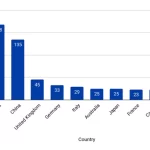
Identification of a core inflammation program in human neutrophils through integrative analysis of single-cell omics and a functional genomics screen
February 6, 2024An international research team led by Professor Dr. Ricardo Grieshaber-Bouyer at the Department of Medicine 3—Rheumatology and Immunology, and Deutsches Zentrum Immunmedizin (DZI) at Universitätsklinikum Erlangen, has identified a core inflammation program in neutrophils, the most common immune cells in the human body. Neutrophils play a crucial role in the immune system’s defenses against infections but are also involved in various inflammatory processes and autoimmune diseases. The study involves an integrative analysis of 11 mouse and 13 human datasets, revealing a strong correlation of neutrophil gene expression across species. While neutrophils display substantial transcriptional diversity in inflammation, they share a core inflammation program. This program includes genes encoding IL-1 family members, CD14, IL-4R, CD69, and PD-L1. The researchers found that chromatin accessibility of core inflammation genes increases in blood compared to bone marrow and further in tissue. Transcription factor enrichment analysis implicates members of the NF-κB family and AP-1 complex as important drivers. In COVID-19 patients, higher expression of core inflammation genes in neutrophils is associated with more severe disease. The study opens new possibilities for diagnosing and treating inflammation and provides insights into the activation of neutrophils in different inflammatory conditions.
Key Points:
- Neutrophils in Immune System: Neutrophils are the most common immune cells in the human body, forming the front line in the immune system’s defenses against infections.
- Inflammatory Processes and Autoimmune Diseases: Neutrophils are also involved in various inflammatory processes and autoimmune diseases.
- Identification of Core Inflammation Program: An international research team has identified a core inflammation program in neutrophils through integrative analysis of single-cell omics and a functional genomics screen.
- Gene Expression Analysis: The study involved analyzing the gene expression of neutrophils in humans and other species, revealing a strong correlation of neutrophil gene expression across species.
- Central Inflammation Program: Activated neutrophils, despite differences in tissue and disease states, share a central inflammation program consisting of genes observed in a wide range of inflammatory conditions.
- Potential Diagnostic and Therapeutic Implications: The identified inflammation program serves as a gauge for neutrophil activation, offering potential diagnostic and therapeutic implications for infections and chronic inflammation.
- DNA Sections Opening Up: DNA sections containing the inflammation program open up while neutrophils are being developed and migrating to the tissue, ensuring preparedness to read the genes of the inflammation program.
- Significance for Human Health: The findings contribute to maximizing knowledge about human health and creating seamless transitions between experimental and clinical research.
- COVID-19 Association: In COVID-19 patients, higher expression of core inflammation genes in neutrophils is associated with more severe disease, highlighting the relevance of the inflammation program.
- Opportunities for Tackling Infections and Inflammation: The study opens up new approaches for measuring inflammation in the body and tackling infections and chronic inflammation.
More information: Nicolaj S. Hackert et al, Human and mouse neutrophils share core transcriptional programs in both homeostatic and inflamed contexts, Nature Communications (2023). DOI: 10.1038/s41467-023-43573-9


















